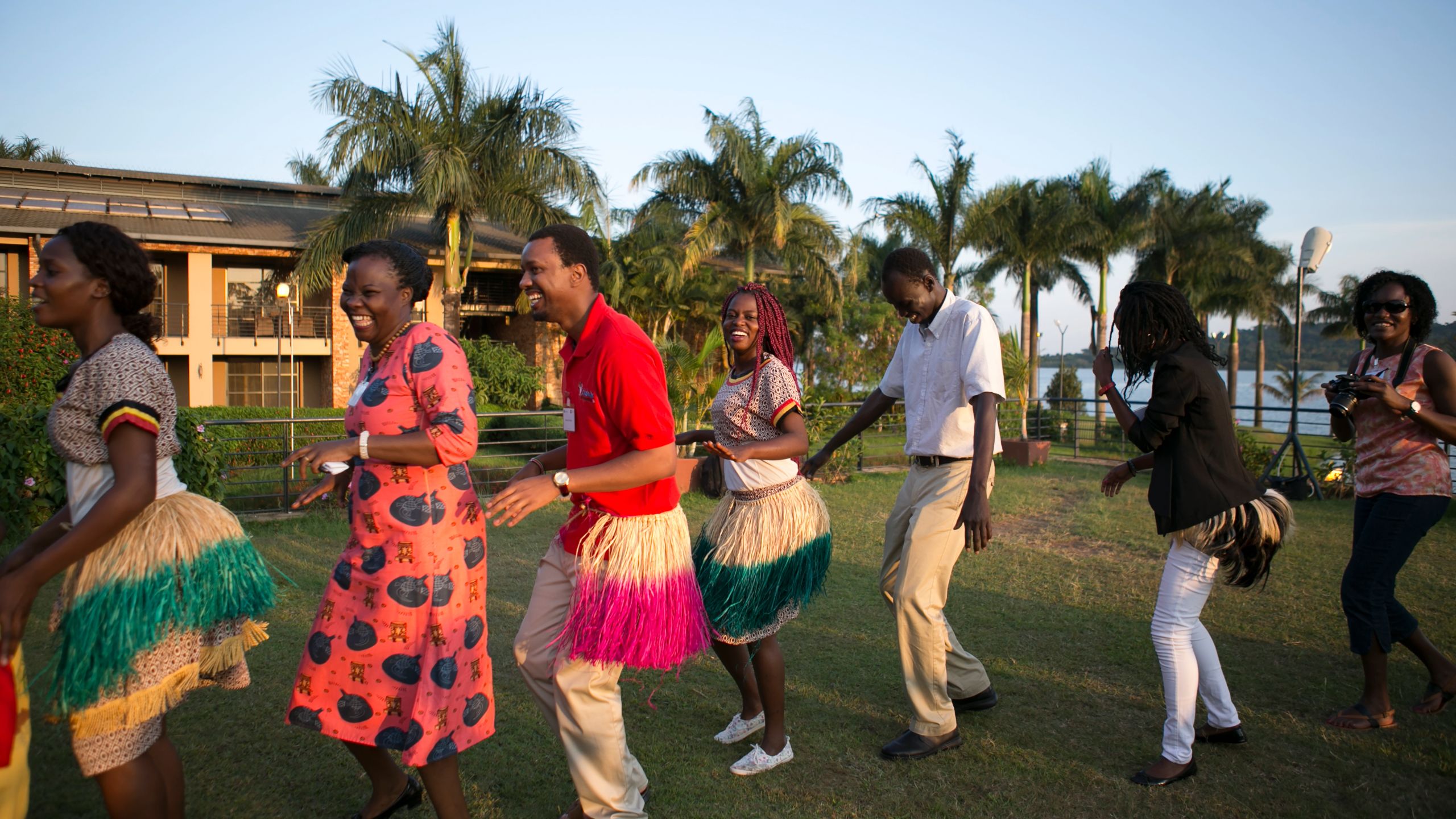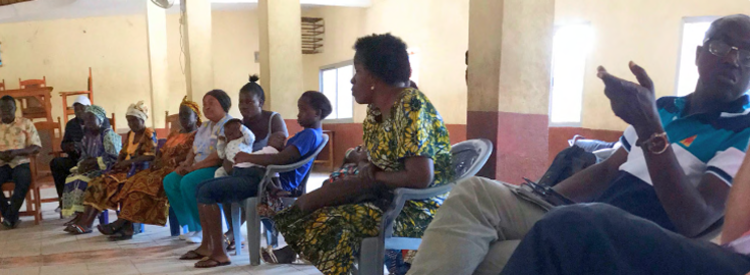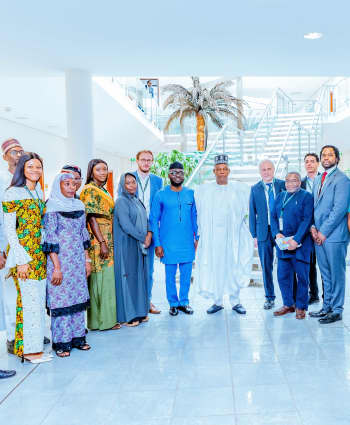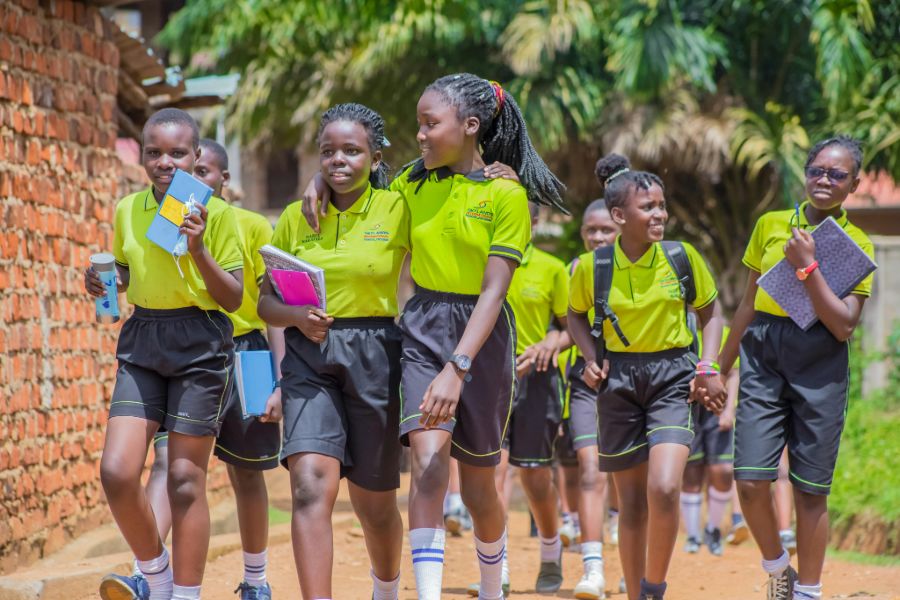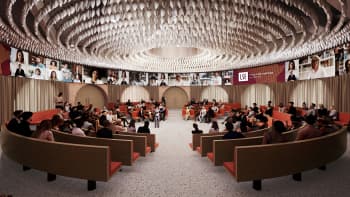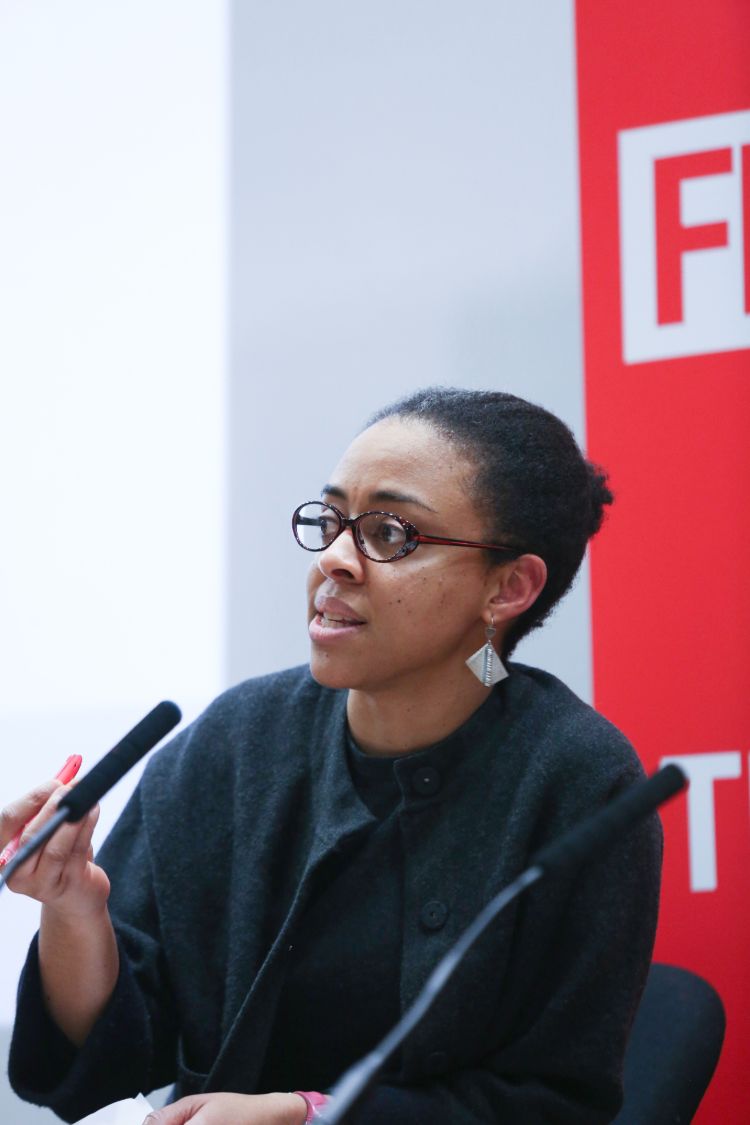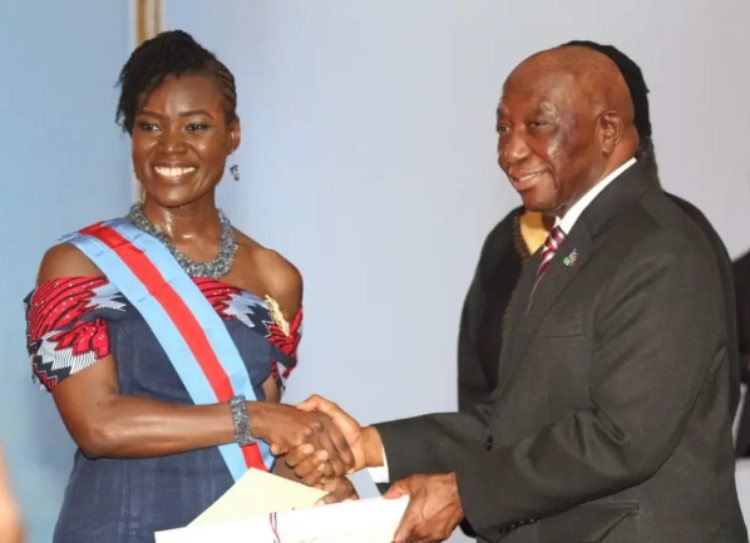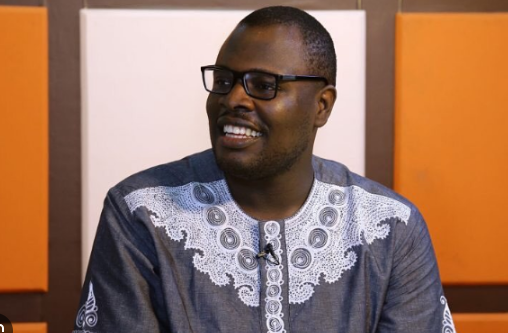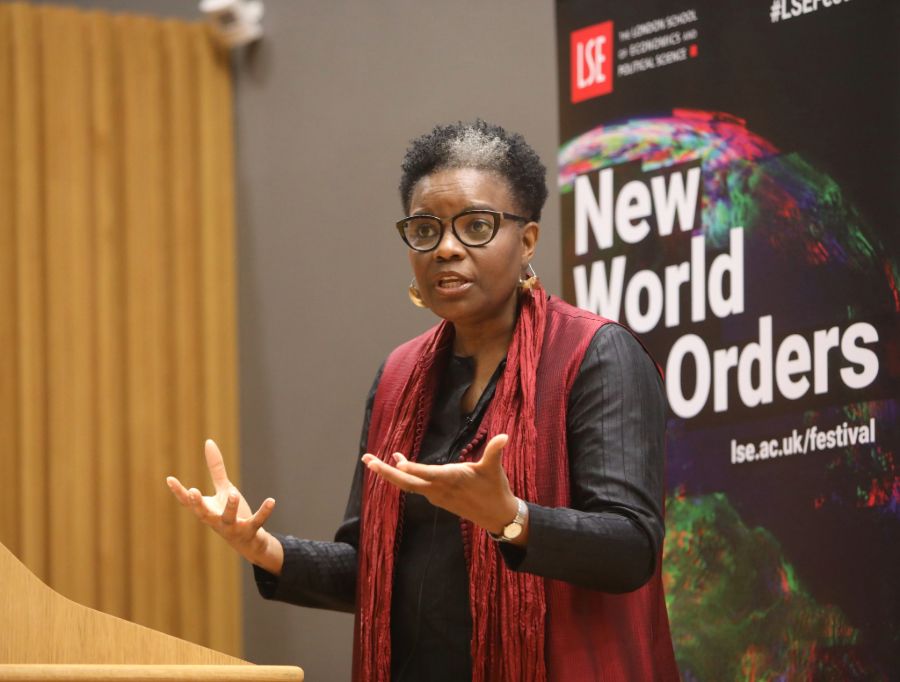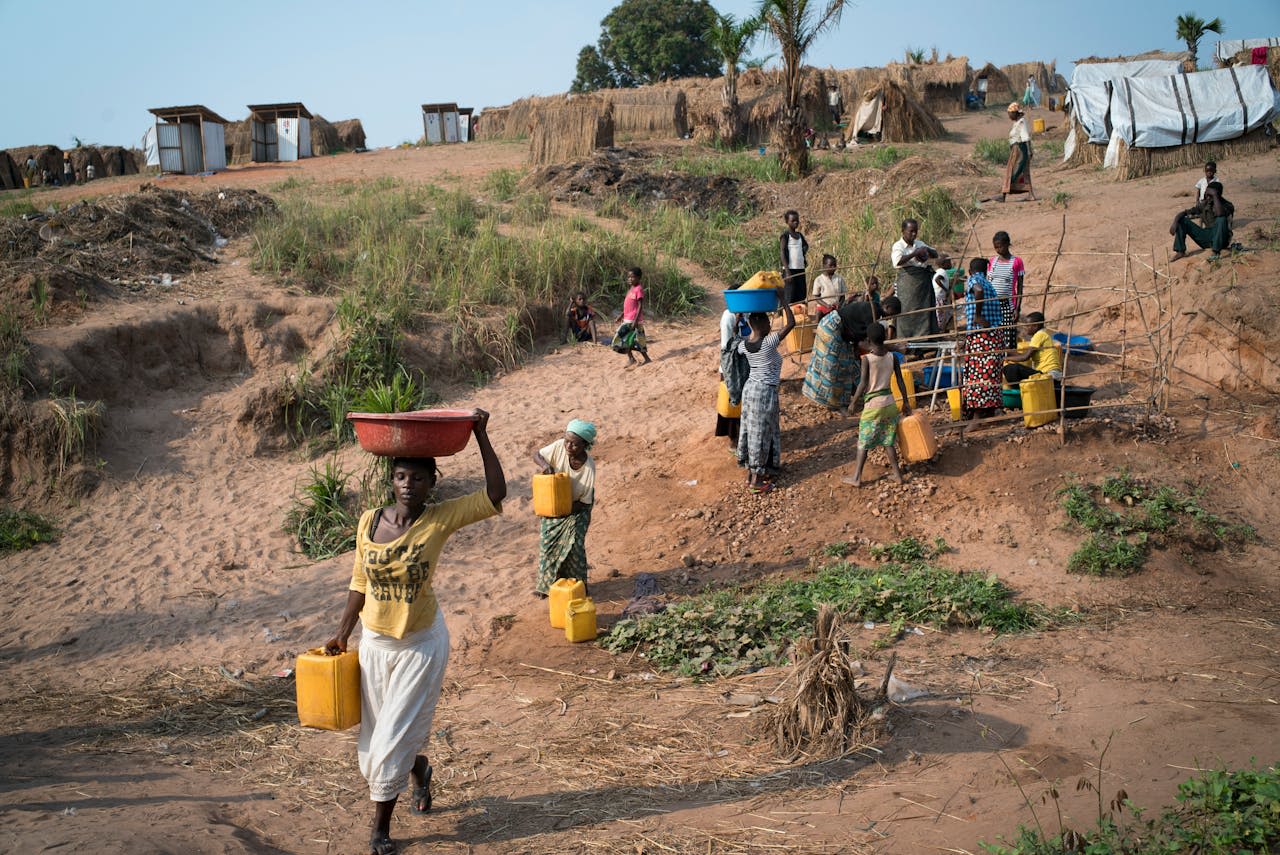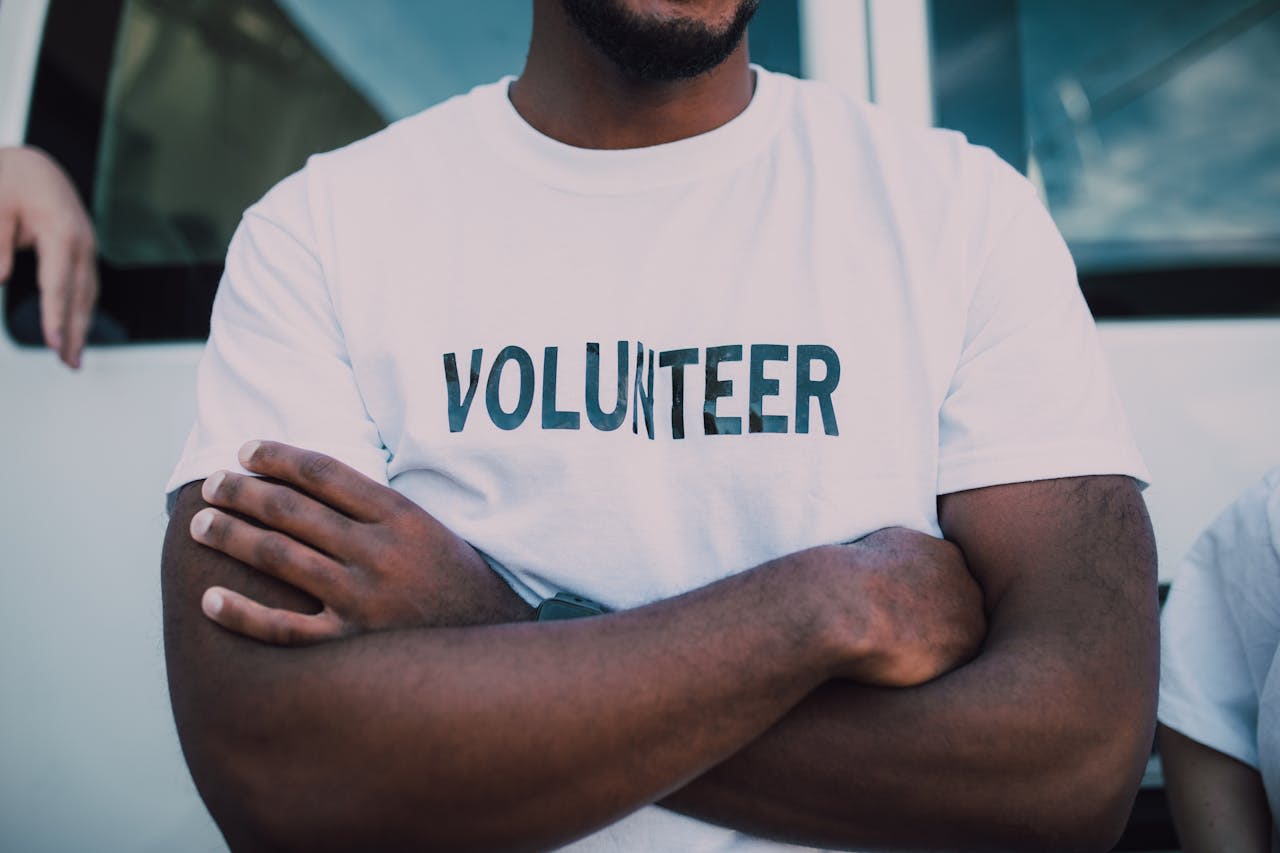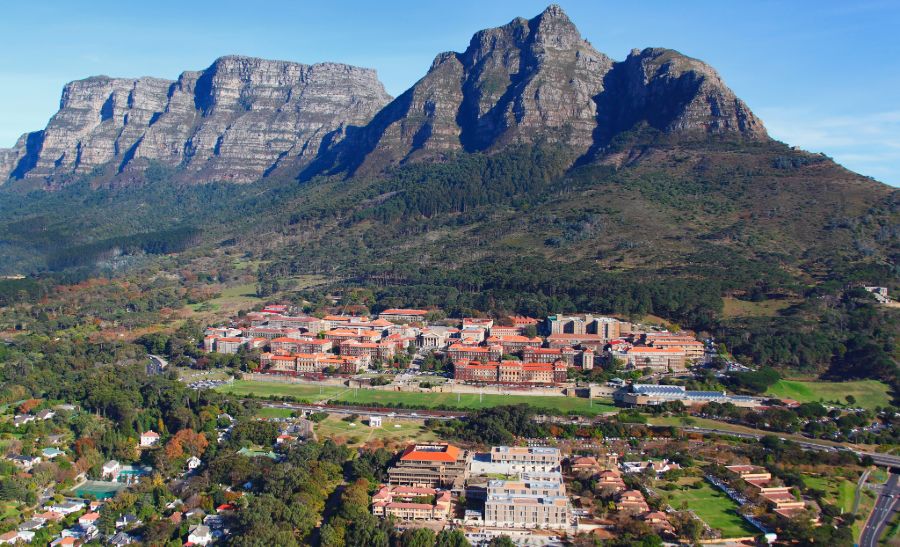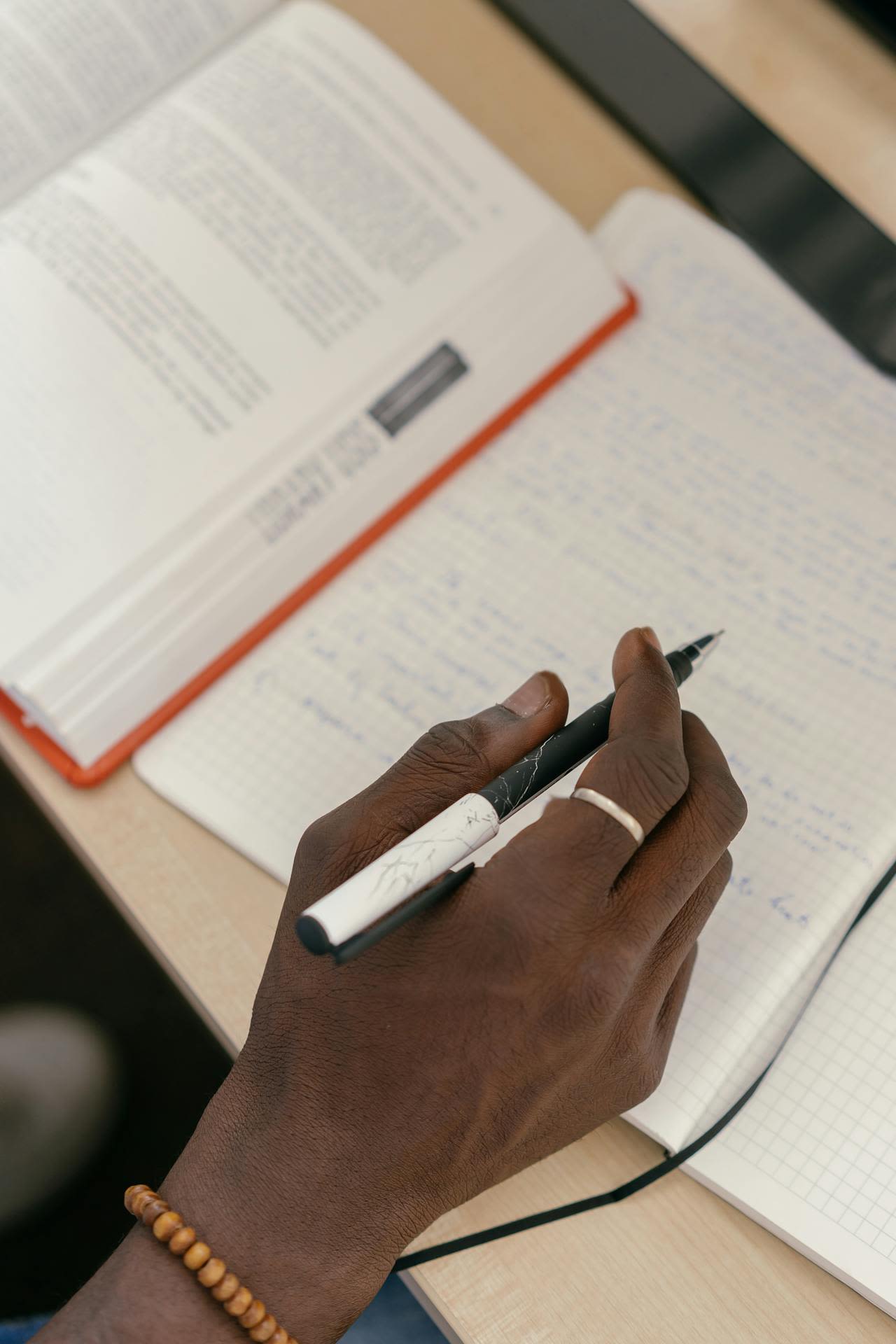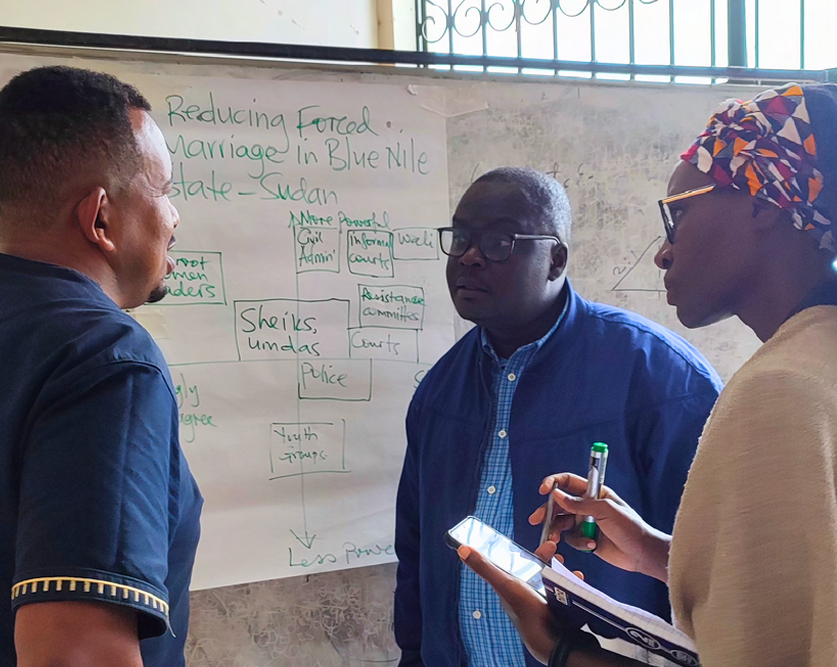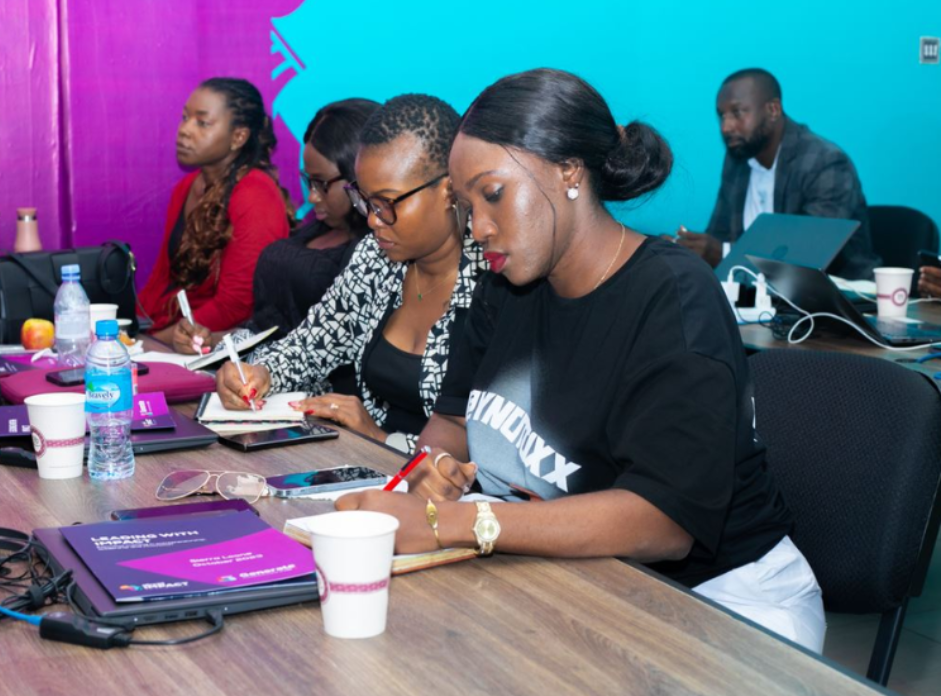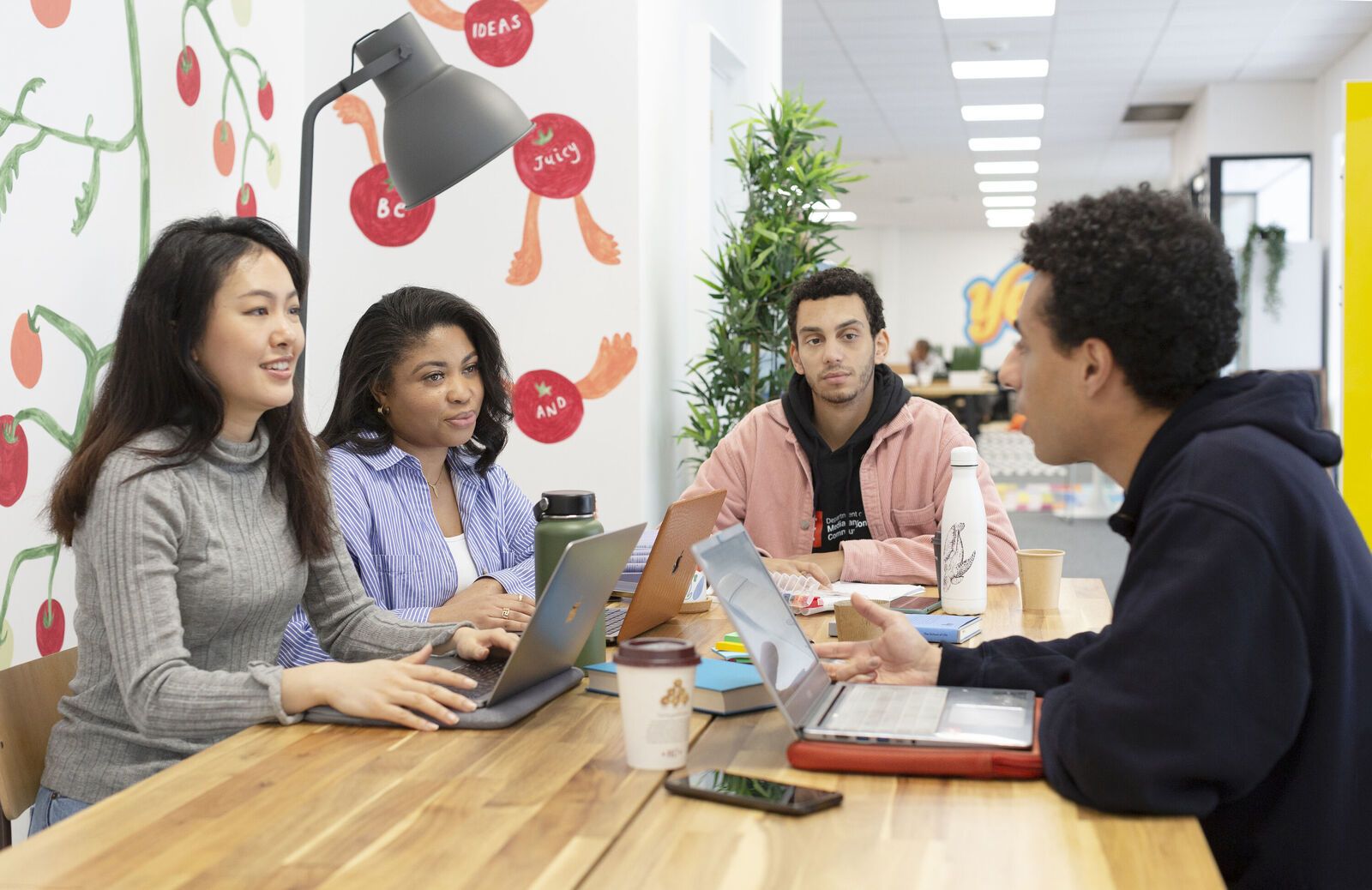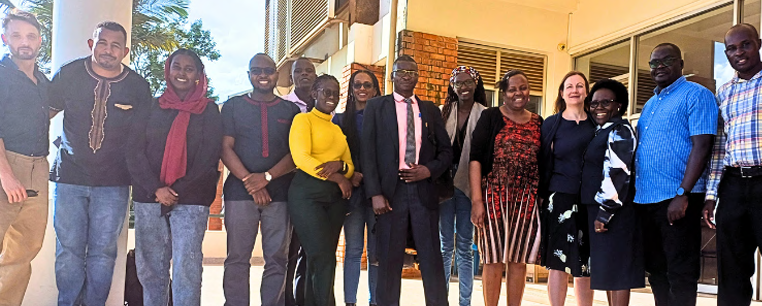Africa and LSE
Shaping a new agenda for impact
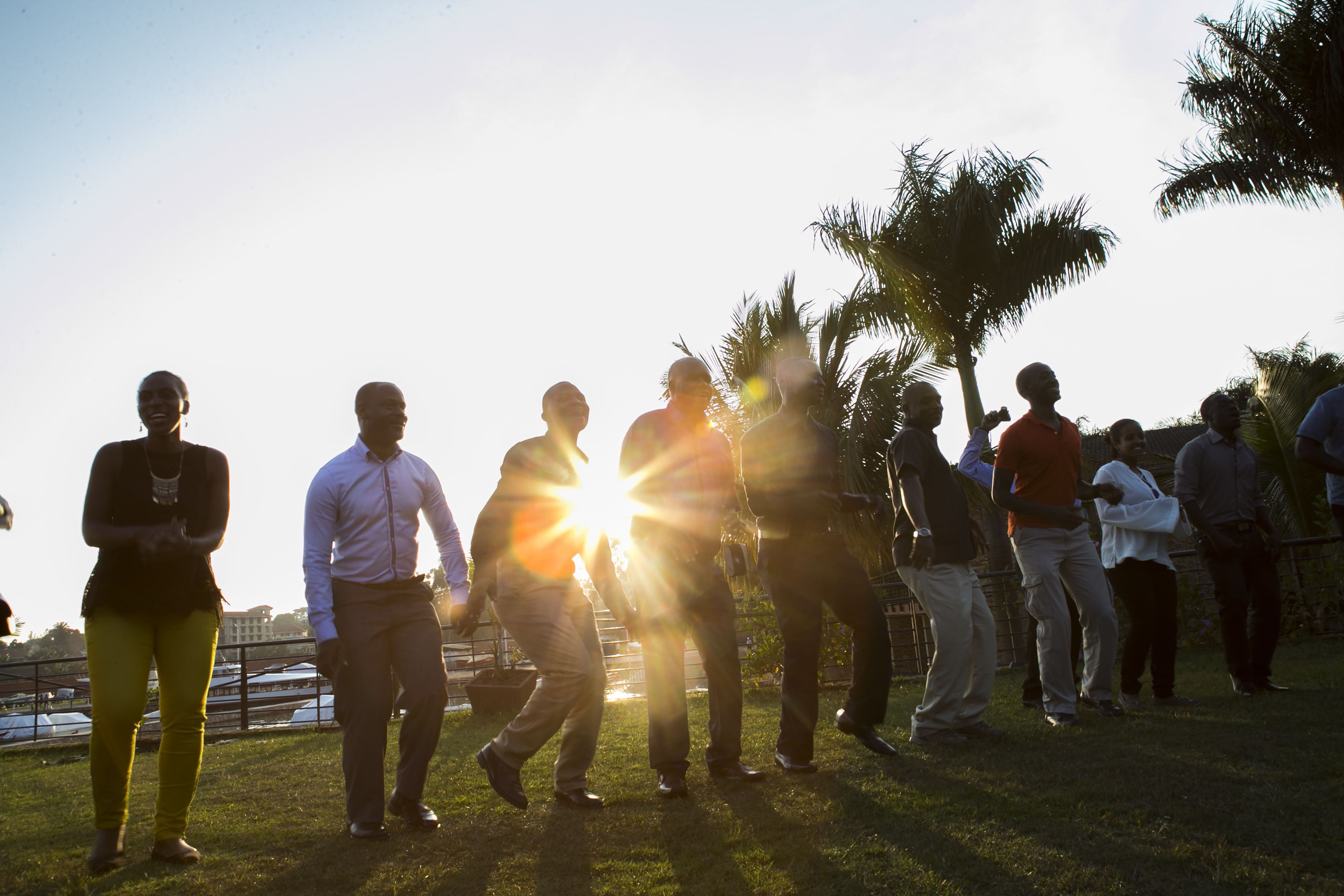
Partnering with Africa to shape a better future for the world
A message from Professor Larry Kramer
Africa has the youngest and fastest growing population of all the major regions of the world. It is also home to nine of the world’s fastest growing economies in 2025. By collaborating with the 54 diverse countries that make up the continent of Africa, we can channel their youth, energy and creativity through LSE to address what we believe to be the five most important challenges facing the continent and all of humanity:
- Designing and reforming government to foster a healthy political culture and enable legitimate, functional public administration;
- Reformulating the relationship between markets and states to ensure shared prosperity;
- Putting the world on a path to environmentally sustainable and inclusive growth;
- Redressing pervasive social and economic inequalities; and
- Wisely deploying new technologies to harness their promised – and desired - benefits.
LSE stands ready to partner with Africa in shaping a new global agenda for positive change.
This overview outlines some of the ways we are already working with already working with many Africa countries on the five global challenges above: through educating the next generation of leaders; supporting cutting edge social sciences research; and turning new ideas into actions that change people’s lives.
With your support we can dramatically expand our collaborations with Africa, shaping the world for the better.
Professor Larry Kramer
LSE President and Vice Chancellor
In this short video Professor Larry Kramer outlines the five global challenges LSE is well placed to address.
You can also watch his full inaugural lecture here.
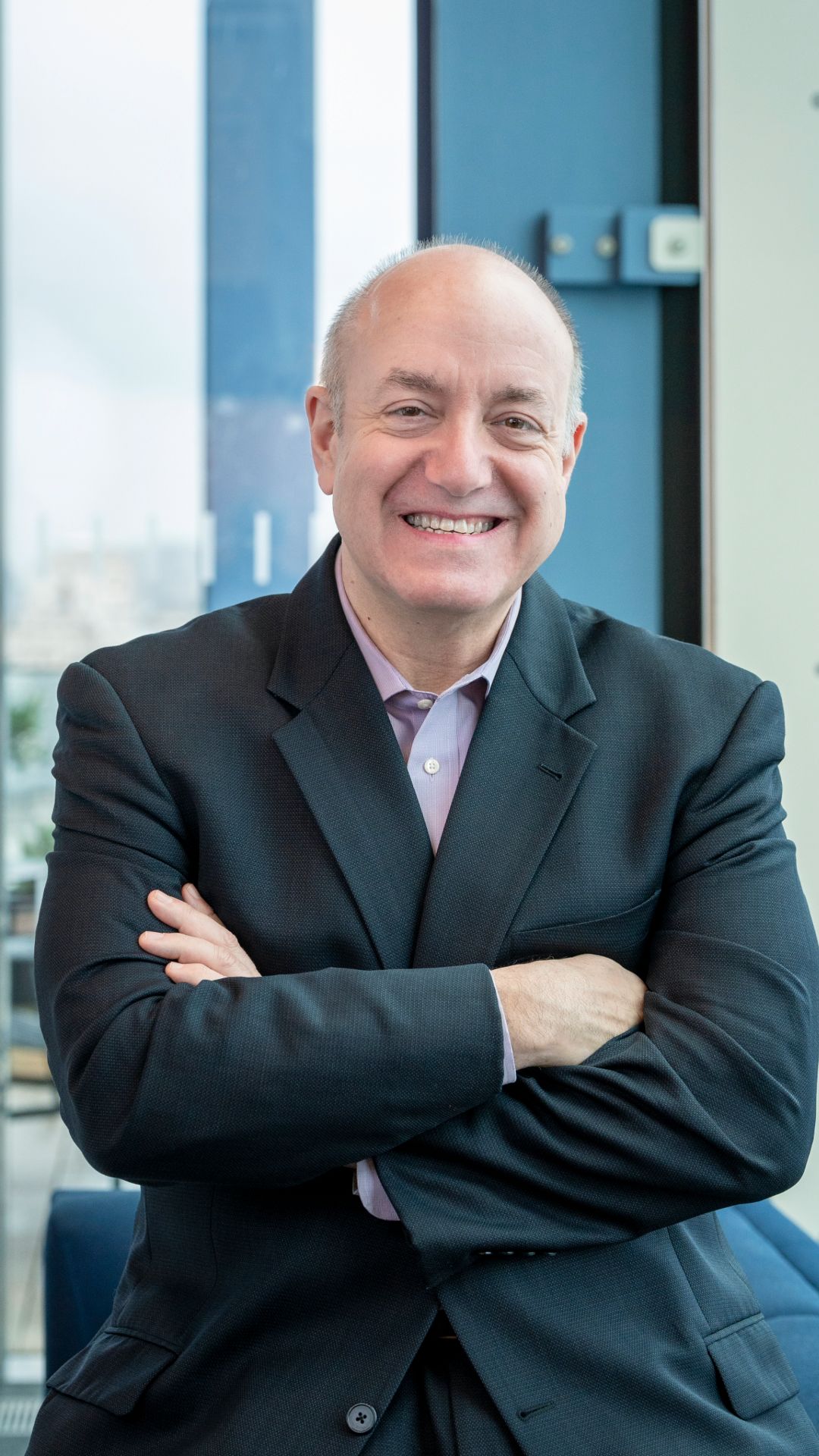
Africa at the centre of solutions to global challenges
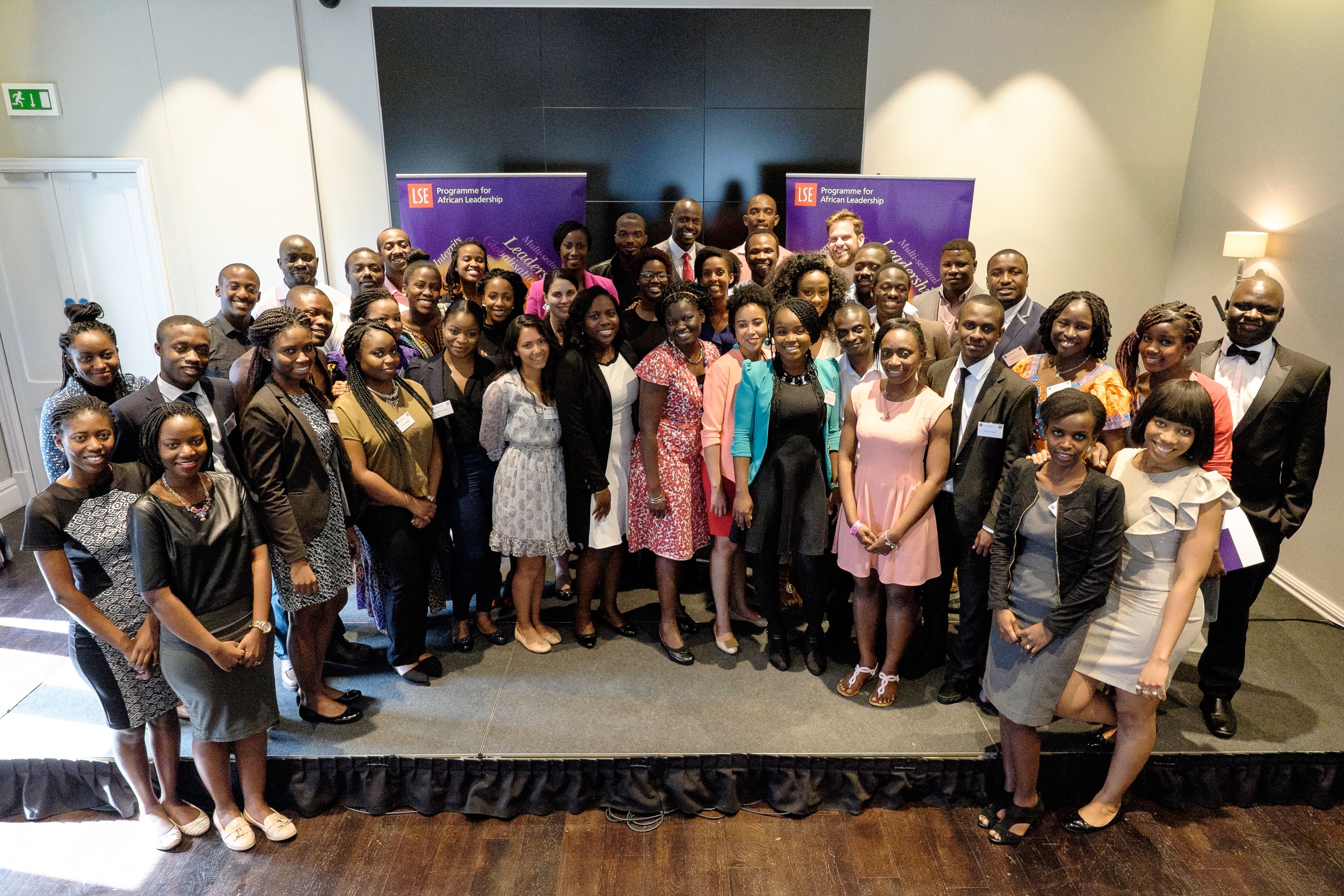
LSE’s Firoz Lalji Institute for Africa (FLIA), established in 2016, is a permanent institute that empowers an innovative, interdisciplinary and international community to investigate the biggest challenges facing Africa and the world.
Drawing together more than 100 academics from across the School and a 1,000-strong Programme for African Leadership (PfAL) alumni network, it strengthens LSE’s commitment to placing Africa at the heart of global debates.
FLIA’s world-leading research is produced in collaboration with partners across the continent. It guides the work of academics, policymakers and practitioners, and has helped to shape policy responses to everything from the Covid-19 pandemic and regional trade to humanitarian protection in Africa. It hosts a range of research centres, including the prestigious Centre for Public Authority and International Development. EHRC-funded, this is currently leading projects that range from providing support for grassroot actors seeking to protect children against sexual and gender-based violence in Uganda, to engaging with the Ethiopian Human Rights Commission (EHRC) on hate speech and the role of the media throughout transitional justice processes.
A CPAID workshop in Africa
A CPAID workshop in Africa
We outline below a small selection of projects and initiatives that are already achieving impact in addressing five of the greatest global challenges.
Current academic partners include:
University of Nairobi, Kenya
University of Johannesburg, South Africa
University of Cape Town, South Africa
University of Ibadan, Nigeria
Makerere University, Uganda
Gulu University, Uganda
Muni University, Uganda
Ugandan Christian University
Njala University, Sierra Leone
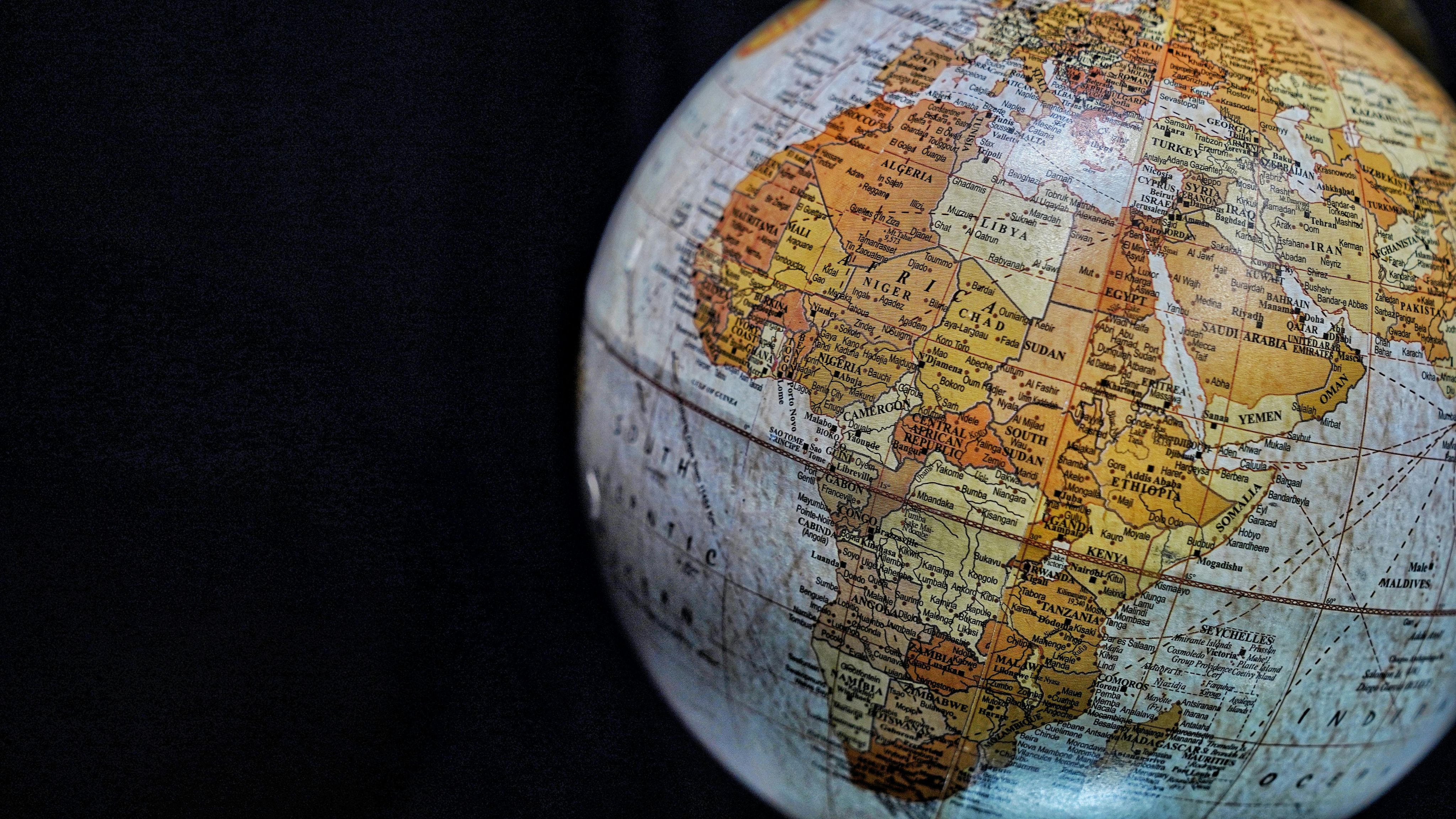
I cannot think of any comparable centre for the study of Africa outside of the continent that has made such a huge impact within such a limited time.
Wale Adebanwi
Presidential Penn Compact Professor of Africana Studies at the University of Pennsylvania and former Director of the African Studies Centre at the University of Oxford
1) Rethinking government:
The African Trade Policy Programme
To harness the potential of trade to drive growth, sustainable development and poverty reduction, policies must be dynamic, inclusive and responsive to changing regional, national and global contexts.
The African Trade Policy Programme, led by FLIA Strategic Director and Professor in Practice David Luke, brings together international expertise to contribute to the creation of trade policies that will help African countries better leverage trade as a vehicle for inclusive development.
Its first major research output, How Africa Trades (LSE Press 2023) by Professor Luke, features data-driven evaluations of what and with whom Africa trades. The book attracted great acclaim upon its release. It was the first LSE Press release to win a major award when named as the UK Business Council for Africa’s Best Business Book of the Year prize in July 2024, and is already having real-world impact on policy-making on the continent.
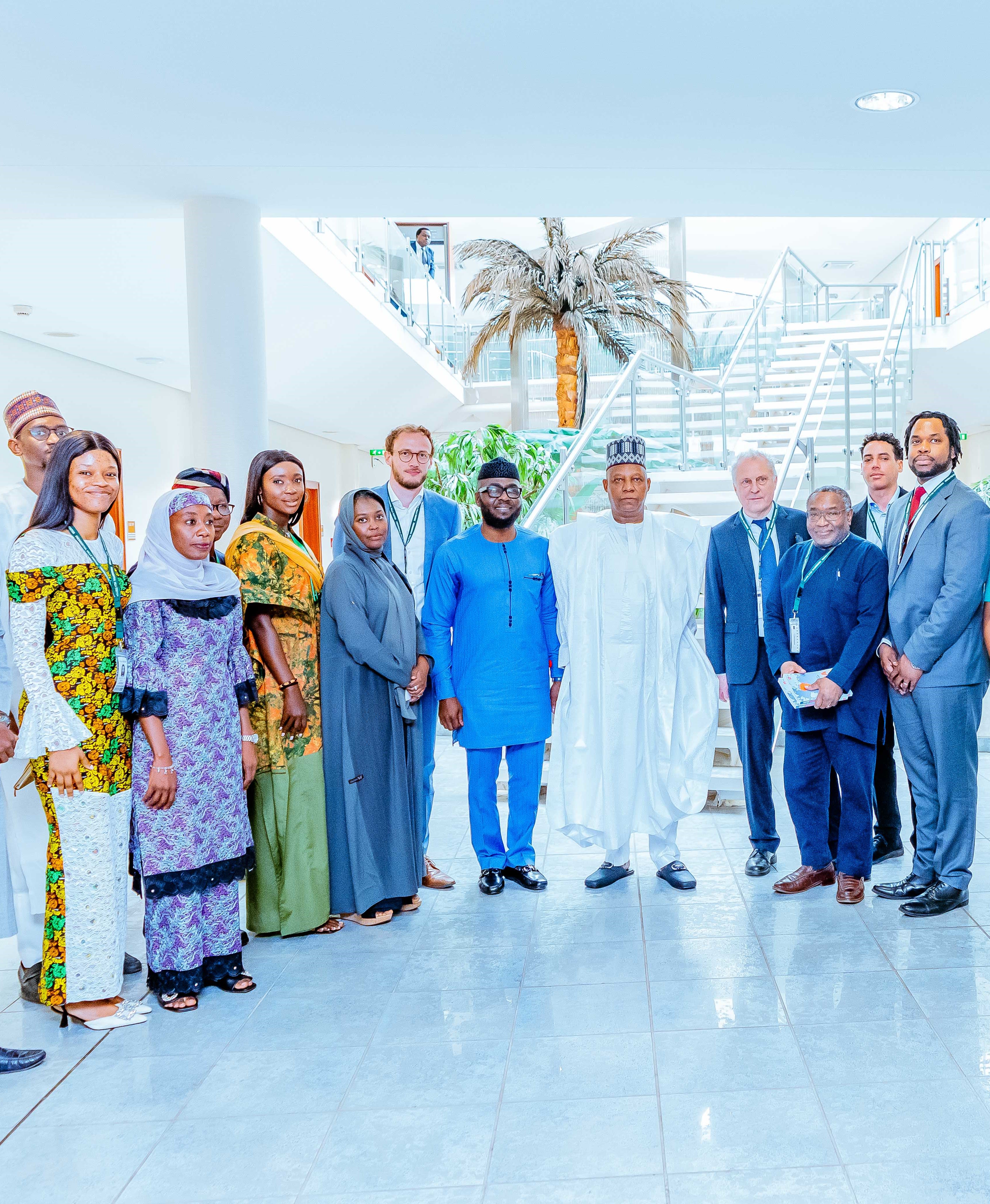
2) Transforming political economy:
The International Growth Centre
Research at the International Growth Centre (IGC), led jointly by LSE and the University of Oxford, has fed directly into better policies and decision-making in 19 countries to date, 12 of which are in Africa.
Through long-term partnerships with governments and policy stakeholders, IGC has worked to increase growth and reduce poverty through more than 600 projects in the last five years.
An IGC study in Zambia, for example, is helping to empower more women to realise their full economic potential through the creation of innovative new training to teach communication and negotiation skills to girls. Following the wide-ranging positive impacts on those taking part - girls reported less hunger, more control over their futures and more positive conversations with people in their lives - the Zambian Ministry of General Education has now incorporated the training into the school curriculum.
3) Driving sustainability:
LSE’s first carbon neutral building for the Firoz Lalji Institute for Africa
LSE is involved in a vast number of sustainability research projects and partnerships on the ground in Africa. One current British Academy-funded project, for example, is working with family smallholdings in northern Uganda, where trees are being lost at an alarming rate, to explore which practices might lead to more sustainable consumption of natural resources and how to inspire wider communities to adopt these.
At home in London, we are partway through the construction of the new Firoz Lalji Global Hub. A seminal piece of architectural design with the highest environmental credentials and educational facilities, the Hub will provide a new home for FLIA at the intellectual and physical heart of our campus.
With increased space, and access to a state-of-the-art agora for public engagement and debates, FLIA will be able to welcome more visiting professors and research collaborators from Africa and across the globe, amplify its public engagement activities, and grow its leadership programmes.
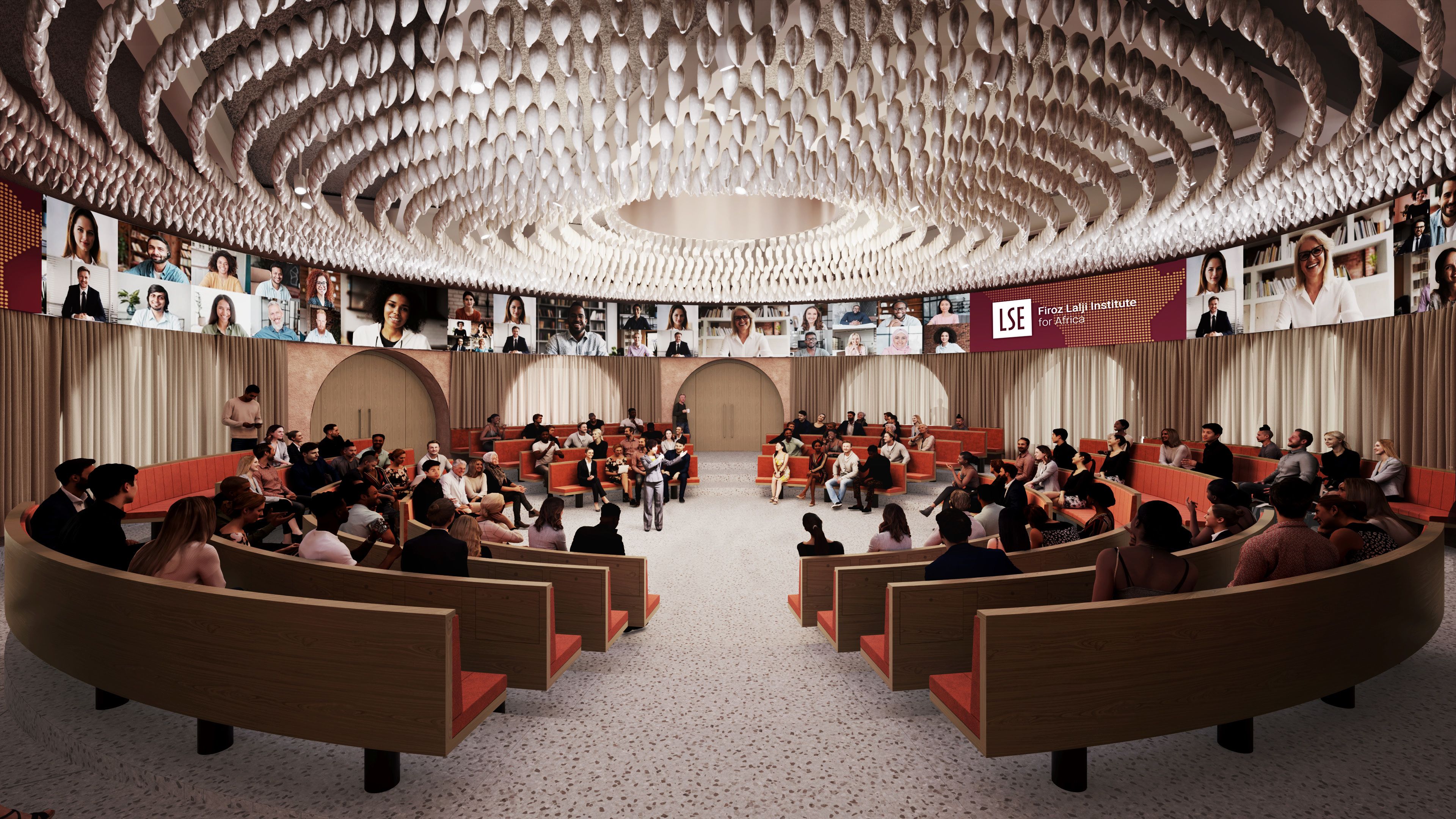
Dr Simidele Dosekun speaking at an LSE event
Dr Simidele Dosekun speaking at an LSE event
Dr Robtel Neajai Pailey delivered Liberia's 177th Independence Day National Oration and received the Order of the Star of Africa, one of the country's highest national honours
Dr Robtel Neajai Pailey delivered Liberia's 177th Independence Day National Oration and received the Order of the Star of Africa, one of the country's highest national honours
4) Combatting inequality:
Shaping inclusive communities
Today’s inequalities are pervasive and multifaceted. LSE research is helping to ensure that Africa’s rapid growth and development turns social exclusion on its head and is part of shaping a radical new world of systemic inclusion.
The work of two of our leading academics driving change in this area features below, but there are many more:
Dr Simidele Dosekun, Assistant Professor in the Department of Media and Communication
Dr Dosekun’s research centres African women to explore questions of gender, race, subjectivity and power in a global context. Her first book, published in 2020, drew on interviews with young, class-privileged Nigerian women to offer a new conceptual understanding of post-feminism as a performative and transnational culture, alongside giving a detailed account of how women embody and, to some extent, suffer this culture in the flesh.
Dr Robtel Neajal Pailey, Assistant Professor in International Social and Public Policy
Dr Pailey pursues research at the intersection of critical development, African and race studies. Her work is positioning Africa as an important, though underrepresented, place for conceiving new models of socio-economic transformation. In 2024 she was inducted into the Order of the Star of Africa, one of Liberia’s highest national honours, in recognition of her policy-driven work in Liberia. Drawing on rich oral histories from over two hundred in-depth interviews in West Africa, Europe, and North America, Dr Pailey examined socio-economic change in Africa’s first black republic, developing a new model for citizenship within the context of crisis-affected states.
5) Harnessing new technologies for good:
The African Health Observatory
AI and new technologies have a vital role to play in Africa and the world’s future, but it is only through the social sciences that we can realise their full potential whilst effectively mitigating the inconceivable dangers they could bring.
LSE is a central partner of the African Health Observatory (AHOP), funded by the Bill and Melinda Gates Foundation and hosted by the World Health Organisation. Set up to generate and share learning, it supports the development of evidence-informed health policies and systems across Africa through a network of national centres in Ethiopia, Kenya, Nigeria, Rwanda and Senegal. AHOP’s success is grounded in the power of new technology to collect, analyse and share data on an unprecedented scale. This evolving global model of knowledge-brokering creates opportunities to compare health systems between countries and worldwide. It played a key role during the Covid-19 pandemic, sharing lessons from early responses in five African countries to inform ongoing policy and interventions more widely across the continent.
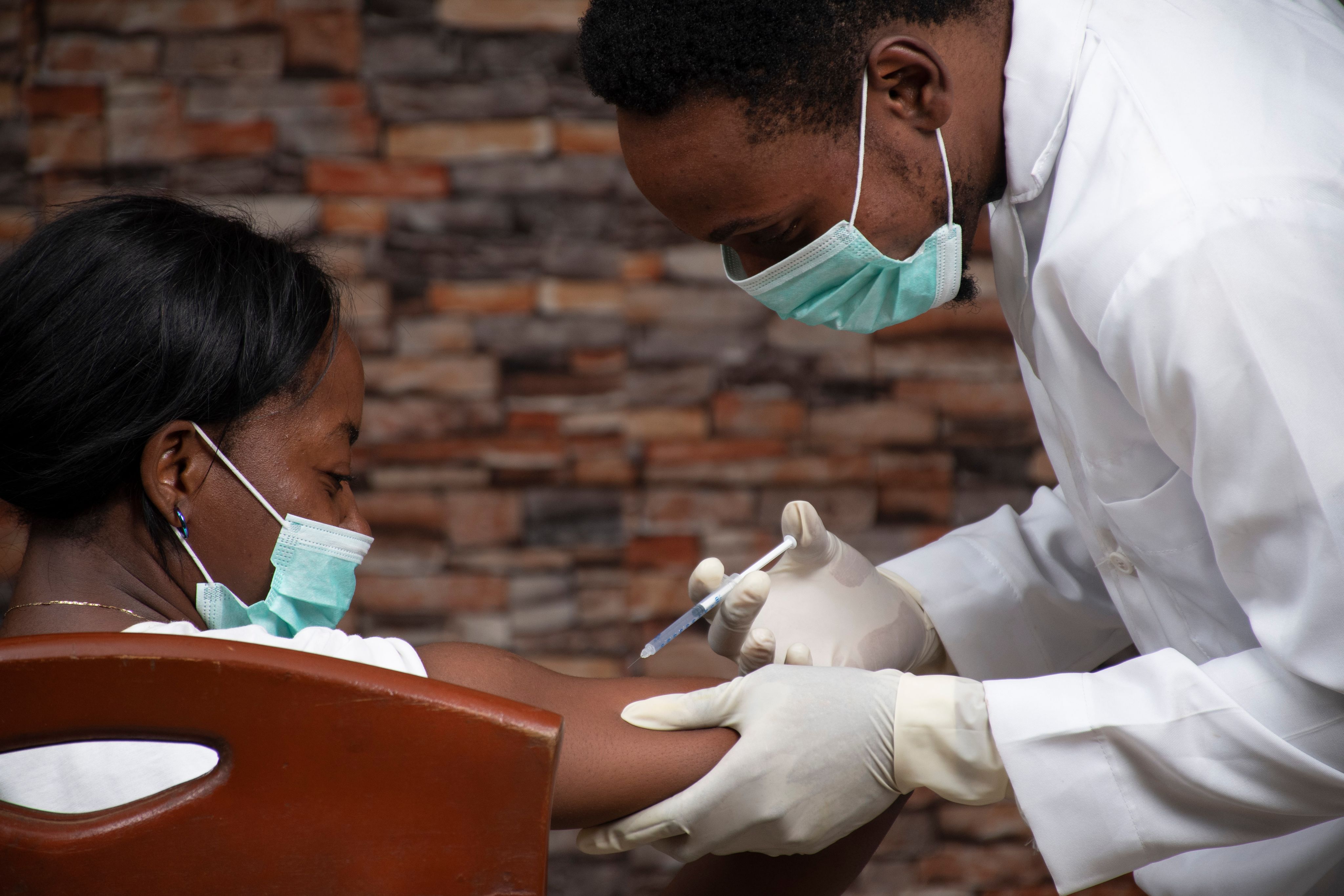
Who are we partnering with in Africa?
The table below, whilst by no means exhaustive, gives a sense of the breadth of our current and recent partnerships in Africa. With your support, we can deepen existing connections and grow our networks further to achieve greater impact.
Creative in residence
A new programme to empower individuals from Africa to connect with the latest academic research and drive change through their creative outputs.
Partners:
Chude Jideonwo, our first Creative in Residence
Visiting fellowships
LSE offers a number of fully funded visiting fellowships for early career and more senior African academics to spend up to six months at LSE.
Partners:
Various (including recent fellows Leonard Wantchekon and Alcinda Honwana)
A glossary for research development
A joint project to improve shared language use to ensure that dialogues between the UK and Zimbabwe are more equitable and effective.
Partners:
University of Zimbabwe
Living the everyday
A FLIA research project based in Uganda, Democratic Republic of Congo and South Sudan to address how social relations and everyday life affect sickness management.
Partners:
Muni University and the University of Gulu, Uganda, the Bridge Network
Dynamics of the NGO sector
FLIA research in South Sudan to inform the UK Department for International Development’s engagement with the localisation agenda in the region.
Partners:
University of Juba, South Sudan, The Research People Consultancy
Institutional partnership
A partnership that includes a joint MSc/MA degree in Global Media and Communications and an undergraduate exchange programme.
Partners:
University of Cape Town, South Africa
Professional workshops
A series of professional development workshops led by FLIA in Sudan and Uganda to support academics to get their work published.
Partners:
Universities in South Sudan and Northen Uganda, British Academy
SoPriMa
An empirical investigation into the market for public and private primary care services to inform the expansion of private healthcare in Soweto, Johannesburg.
Partners:
University of the Witwatersrand and the Centre for Health Policy, South Africa
Influencing Senior Leaders
This course, delivered partly in person and partly online, aims to empower senior humanitarian, development and aid leaders to drive change in their institutions.
Partners:
Global Executive Leadership Initiative, United Nations
On-the-job training
LSE Generate, the School’s hub for entrepreneurship, is piloting a new model of professional education in The Gambia and Sierra Leone.
Partners:
Africell, a leading mobile operator
Entrepreneurs hub
LSE Generate launched a new entrepreneurship hub in Nigeria, a physical space to support alumni and students launching socially responsible businesses.
Partners:
UK High Commission in Lagos, the British Council
Professional development course
A FLIA-run eight-week course on public authority and humanitarianism for early and mid-career scholars, humanitarian and development professionals.
Partners:
Makerere University, Uganda
Shaping the next generation of African leaders
LSE has a long legacy of working with African countries.
From the 1930s, seven post-independence African Heads of State studied at LSE including Jomo Kenyatta (Kenya), Kwame Nkrumah (Ghana), and Sylvanus Olympio (Togo). In 1957, LSE students were among the first to protest the Apartheid regime in South Africa.
In the 2000s, LSE became a frequent destination for notable African leaders, including Nelson Mandela and Kofi Annan. We have also trained many of the African policymakers, economists and financial leaders who went on to build the continent’s civic infrastructure and institutions.
Today, LSE’s distinctive and flagship offering is the Programme for African Leadership (PfAL).
Exclusively available to African graduate students at the School since 2012, PfAL has evolved into an alumni network of over 1,000 African innovators working across academia, government, the private and third sectors in 36 countries. Students participate in a series of special activities and events throughout the year, designed to enhance their studies and experience at LSE. The programme focuses on building skills in leadership, networking, project management, and entrepreneurship to support success after graduation.
LSE students across all stages of study are responsible for leading the groundbreaking Africa Summit, Europe’s largest, student-led conference that showcases Africa’s expertise and global contribution. Attracting over 500 attendees and convening leading scholars, politicians, activists and entrepreneurs, it provides a unique forum to share ideas and translate thought into impact.
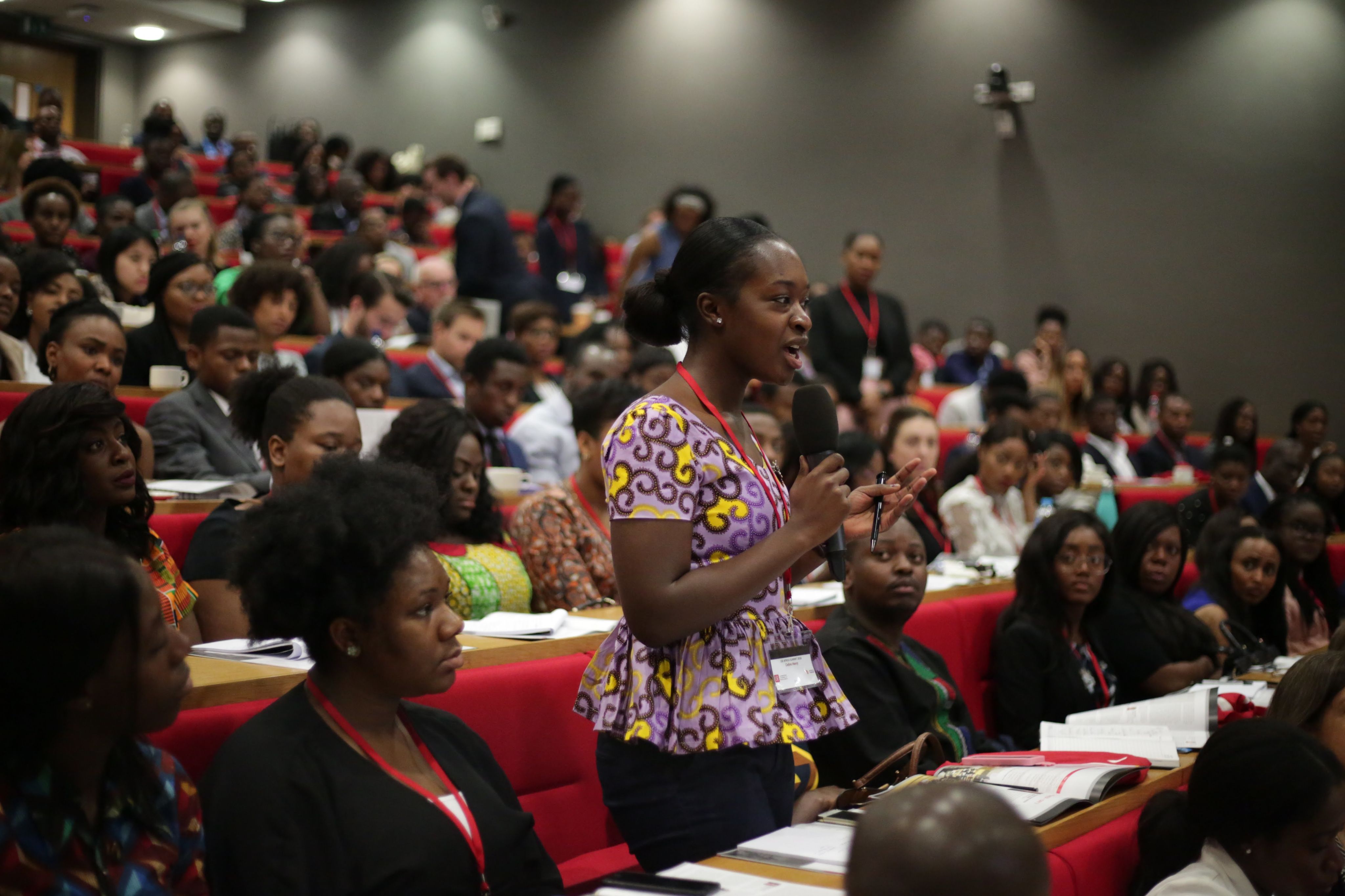
Breaking down barriers: 100 African scholars at LSE
LSE alumni from Africa are having an impact in all spheres of life, from politics and academia, to business and education.
But students from the continent are underrepresented at the School, making up just 1.6% of our student community despite representing 20% of the global population.
Our current community, with just one in 63 students from Africa.
A more representative community to work towards, with one in five LSE students from Africa.
We know that cost is a barrier and we are committed to ensuring that opportunities here are accessible to the most talented students best equipped to use an LSE education for good, rather than just simply those who can afford the fees.
In 2021, with lead support from Jules Green, we announced a goal to secure 100 African scholarships supported through philanthropy every year, catalysing a strategic approach to bringing more outstanding African students into our community. In this academic year we are providing 23 scholarships but we need new partners to achieve our goal and build an LSE community that better reflects society.
We are especially seeking support for LSE’s endowment to ensure scholarships are available for African students for generations to come.
A gift of £1.5 million, for example, will support one MSc student from Africa, on average, every year, in perpetuity.
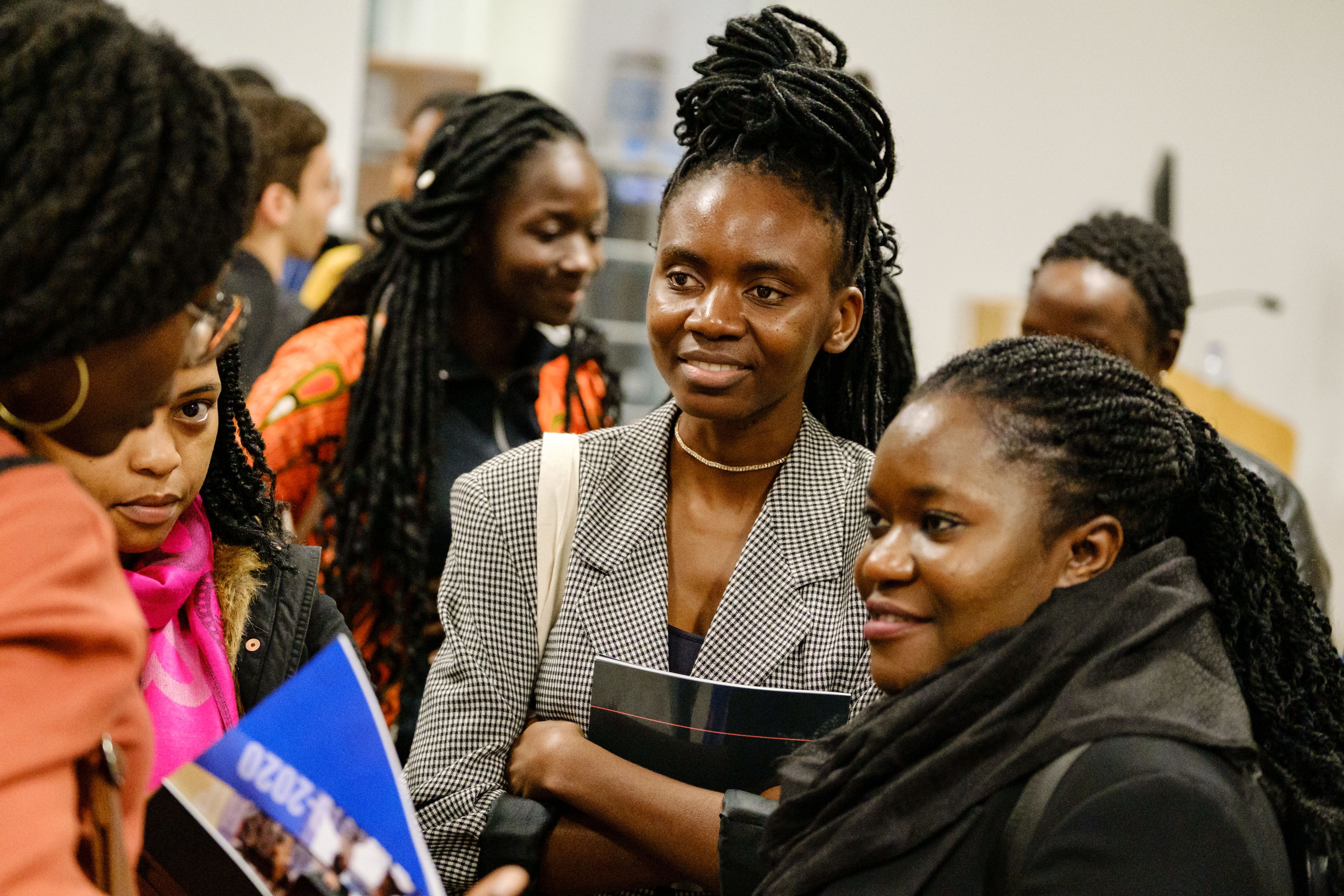
Networks to support lifelong learning
Scholars benefit from bespoke programmes hosted by FLIA and specifically tailored to students from Africa. These start before an application is made to LSE as we work through networks and partnerships on the continent to reach as broad a range of applicants as possible through the Africa Engagement Programme (AEP).
Once at LSE, scholars will have access to the Africa Talks series, which platforms Africa’s pre-eminent thinkers and practitioners across academia, politics, business and activism, and the Africa Summit, as well as the Programme for African Leadership.
Once they leave LSE, we continue to support students in their transition to meaningful, fulfilling and impactful careers, with a specific focus on ensuring graduates have the skills needed to compete in the African job market.
The African Employer Network, for example, connects African employers to our pool of talented and skilled alumni through internships or employment opportunities, while the Career Transitions Lab provides advice and facilitated discussions for recent MSc graduates looking to make an impact on the continent. The Africa Internship Programme places current students or recent alumni in relevant professional organisations such as the African Union, African Private Equity & Venture Capital Association (AVCA), and Global Initiative Against Transnational Organised Crime (GI-TOC).
For alumni, the Programme for African Leadership Forum offers a vibrant platform for dialogue and collaboration centred on Africa’s development. Held on the African continent, this biennial event provides an unparalleled opportunity for alumni to engage with leaders in business, politics and development, fostering a network of change-makers dedicated to tackling the most pressing challenges facing their communities, countries and the continent.
Join us to be part of a powerful collective effort investing in the next generation of leaders who will create positive social impact in Africa and the world.
Over the years since I left LSE, I have been trying to embody Firoz’s advice. For instance, in 2019, I founded Okere City, a rural futuristic development organisation impacting the lives of 5,000 marginalised individuals in northern Uganda through the provision of educational, healthcare and economic opportunities.
Ojok Okello
PfAL graduate
Help us achieve more, together
Thank you for your interest in partnering with LSE.
African staff and scholars are already leading the charge in addressing the biggest challenges facing our world today, generating new thinking and ideas that are driving change.
Join us now as we embark on a new agenda to rapidly accelerate progress, expand our connections and strengthen the impact we can achieve, with Africa and the world.
Please contact Ikenna Acholonu, Philanthropy Manager - I.Acholonu@lse.ac.uk - to discuss opportunities for partnership.
